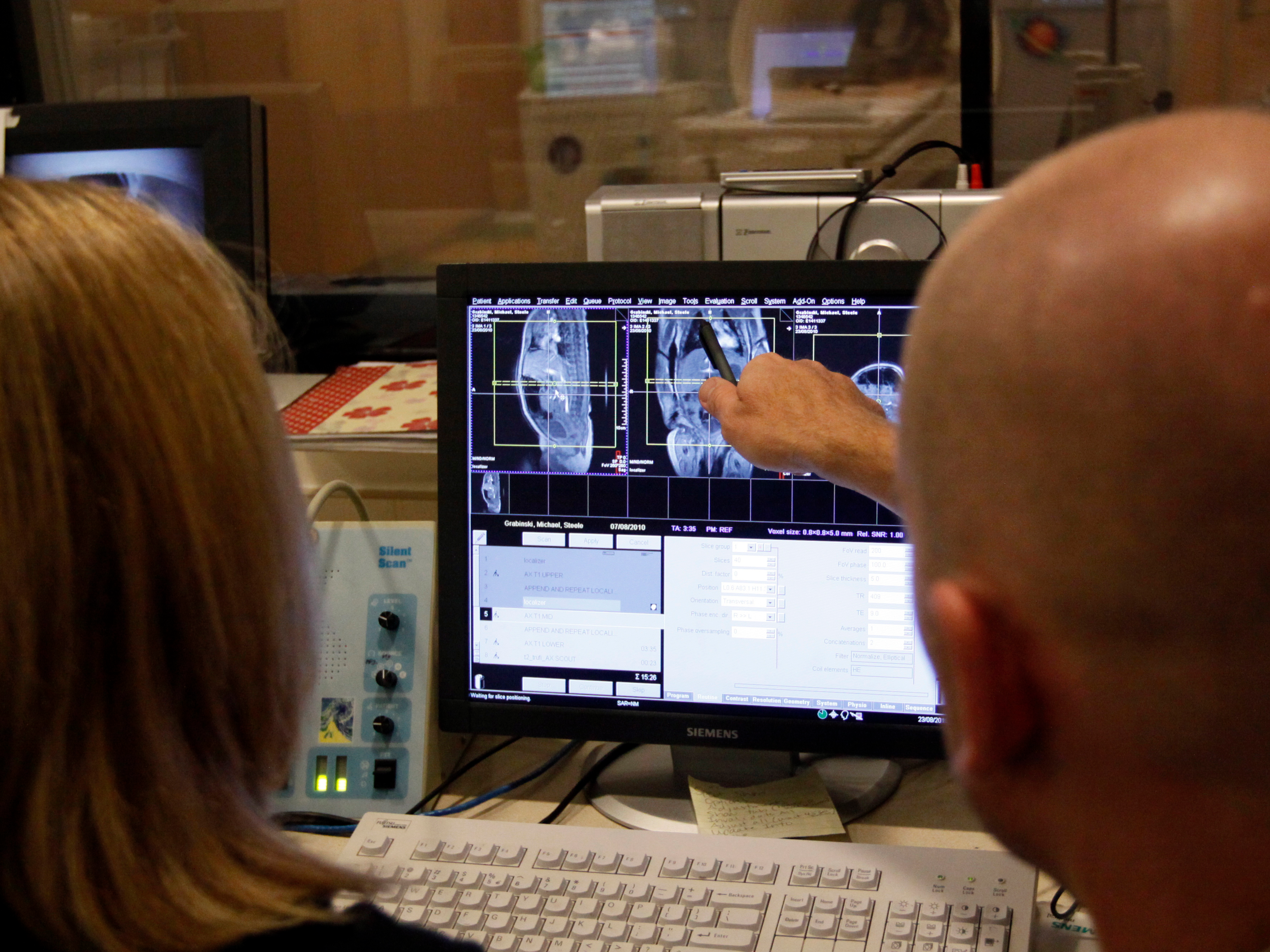- Facial-recognition software can now accurately match photos of people to their brain scans, The Wall Street Journal reported.
- Researchers consider this a potential privacy threat, because the law is not advancing as quickly as technology in this area.
- The software correctly identified volunteers more than 80% of the time, although it will likely be less accurate when drawing from a larger pool of people.
- Visit Business Insider’s homepage for more stories.
A brain scan may be enough for the average facial-recognition software to identify you, Melanie Evans at The Wall Street Journal reported on Wednesday.
Using commonly available facial-recognition software, Mayo Clinic researchers found that it was able to correctly match patients with their MRI images 83% of the time, according to the Journal. An MRI is a medical image that can be used to identify conditions of the brain and spinal cord including aneurysms, strokes and other issues, according to the Mayo Clinic. The resulting images usually include an outline of the head, including skin and fat but not bone or hair, the Journal reports.
One of the researchers, Christopher Schwarz, told Evans that the Mayo Clinic team pursued this study after noticing the high quality of images used to study the brains of patients with Alzheimer’s and dementia. Schwarz said that this discovery poses the risk of exposing family medical history, risk of certain diseases, and genetic information of people who have had MRIs.
84 volunteers participated in the study, and radiology professor Eliot Siegel told The Wall Street Journal that the actual risk to patients is very small. Software would likely have more trouble matching people with their scans if it had to draw from a larger pool, he said.
Still, privacy laws are not moving as fast as technology. An NYU report from December warned about the potential risks of facial recognition. The technology is increasingly used by police for surveillance and catching suspects, and US Border Patrol is considering using it as well, although there is evidence of incorrect matches.
Even attempts at regulating facial-recognition technology can be tricky. Amazon is pushing congress to regulate the technology, but with laws drafted by the company.

